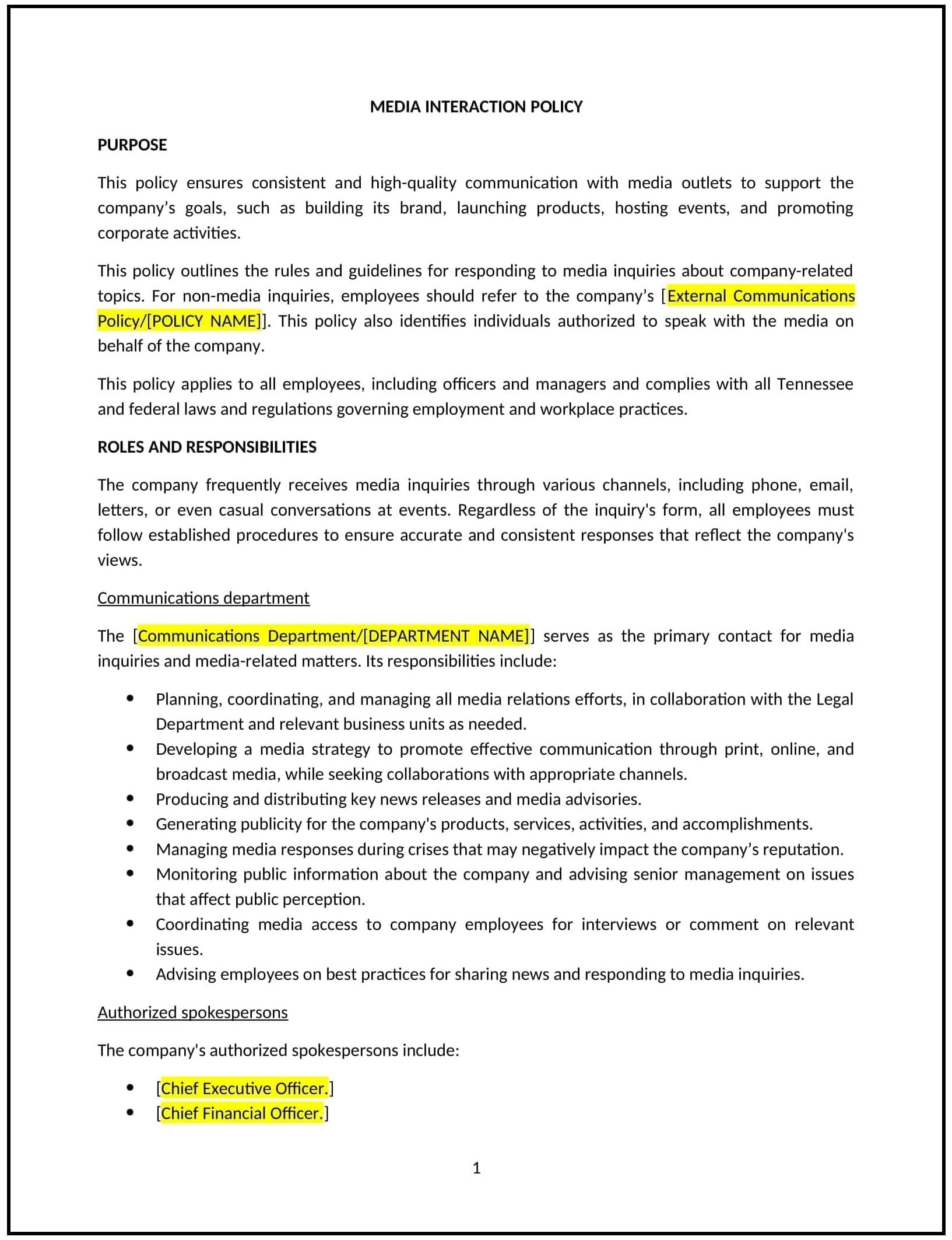Got contracts to review? While you're here for policies, let Cobrief make contract review effortless—start your free review now.

Customize this template for free
Media relations policy (Tennessee)
This media relations policy is designed to help Tennessee businesses establish guidelines for interacting with the media. It outlines procedures for managing press inquiries, issuing statements, and maintaining the business’s public image.
By adopting this policy, businesses can protect their reputation, ensure consistent messaging, and align with best practices for media engagement.
How to use this media relations policy (Tennessee)
- Define authorized spokespersons: Specify who is authorized to speak to the media on behalf of the business, such as PR representatives or senior management.
- Set response procedures: Outline steps for handling media inquiries, including timelines and approval processes.
- Address crisis communication: Provide guidelines for responding to negative press or emergencies, such as issuing press releases or holding press conferences.
- Train employees: Educate staff on the policy and their roles in maintaining the business’s public image.
- Review and update: Assess the policy annually to ensure it aligns with evolving business needs and media trends.
Benefits of using this media relations policy (Tennessee)
This policy offers several advantages for Tennessee businesses:
- Protects reputation: Ensures consistent and accurate messaging to the media.
- Maintains brand integrity: Provides clear guidelines for representing the business professionally.
- Reduces risks: Minimizes the potential for miscommunication or unauthorized statements.
- Enhances trust: Builds confidence with customers, partners, and stakeholders through transparent communication.
- Aligns with best practices: Supports a structured approach to media relations.
Tips for using this media relations policy (Tennessee)
- Communicate the policy: Share the policy with employees and include it in the employee handbook.
- Provide training: Educate staff on proper media interaction and the importance of consistent messaging.
- Monitor compliance: Regularly review media interactions to ensure adherence to the policy.
- Address issues promptly: Take corrective action if unauthorized or inaccurate statements are made.
- Update regularly: Assess the policy annually to ensure it aligns with evolving business needs.